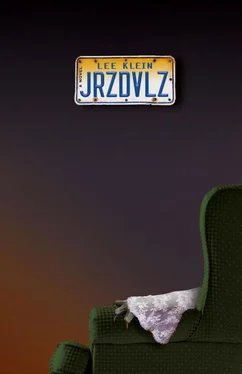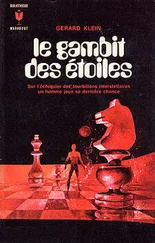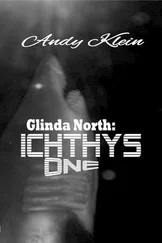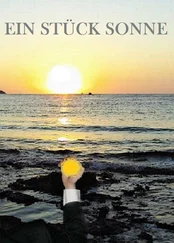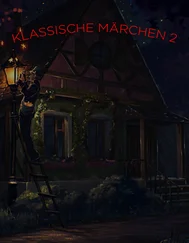Lee Klein - Jrzdvlz
Здесь есть возможность читать онлайн «Lee Klein - Jrzdvlz» весь текст электронной книги совершенно бесплатно (целиком полную версию без сокращений). В некоторых случаях можно слушать аудио, скачать через торрент в формате fb2 и присутствует краткое содержание. Город: Montclair, Год выпуска: 2017, ISBN: 2017, Издательство: Sagging Meniscus Press, Жанр: prose_magic, на английском языке. Описание произведения, (предисловие) а так же отзывы посетителей доступны на портале библиотеки ЛибКат.
- Название:Jrzdvlz
- Автор:
- Издательство:Sagging Meniscus Press
- Жанр:
- Год:2017
- Город:Montclair
- ISBN:978-1-944697-32-7
- Рейтинг книги:3 / 5. Голосов: 1
-
Избранное:Добавить в избранное
- Отзывы:
-
Ваша оценка:
- 60
- 1
- 2
- 3
- 4
- 5
Jrzdvlz: краткое содержание, описание и аннотация
Предлагаем к чтению аннотацию, описание, краткое содержание или предисловие (зависит от того, что написал сам автор книги «Jrzdvlz»). Если вы не нашли необходимую информацию о книге — напишите в комментариях, мы постараемся отыскать её.
Jrzdvlz — читать онлайн бесплатно полную книгу (весь текст) целиком
Ниже представлен текст книги, разбитый по страницам. Система сохранения места последней прочитанной страницы, позволяет с удобством читать онлайн бесплатно книгу «Jrzdvlz», без необходимости каждый раз заново искать на чём Вы остановились. Поставьте закладку, и сможете в любой момент перейти на страницу, на которой закончили чтение.
Интервал:
Закладка:
Wharton conceived the idea when a local told him that if one ran a pole ten feet into the sand it spurted coppery water altogether pure. The sand of the terrain filtered rainwater and stored it protected in underground lakes unfathomably endless, renewed with every rainfall. Topographical surveys documented it. This water would save the city better than any attempt to filter its polluted rivers and streams. From beneath his lands he would import innocence, purity, renewal. He would convey it by pipe and aqueduct and store it in reservoirs outside Camden and then deliver it to faucets via tunnels running beneath the rancid Delaware. It could be done, it would employ thousands, and it would save the city.
Pure water was needed, and just to the east it was endless.
Wharton would oversee the project from a moderate dwelling rising from the pines. In a clearing to the west were reconstructions of the original iron works there, excavated like the ruins of some great society instead of an early venture in American industry.
His interests in this property and project, his advisors said, came at the expense of lucrative exploits elsewhere, but Whar-ton felt best here. He and his family took long autumn vacations. He envisioned the lake beneath the land that surfaced as bogs and ponds and rivers, coppery and pure. He sensed the inevitability of success, as he had since he first proposed the use of his nickel in the country’s coins.
Any idiot could rate gold and gems but to value worthless ores, to turn these into common currency by application of imagination and will, to recognize the savior of a city in copper-colored water, that was what men like Wharton were good for, and for every man like him a dozen others united in opposition. Hundreds with more practical ambitions, without that transformative spark in the eye—well-meaning councilmen lined up against Wharton like those who had persecuted Christ. That story, of all stories, he valued. It supported obstinate avowal of his most persistent interests. Minor figures have always ganged together to peck at those like Christ and Wharton, who did not waver.
His only failure had been in bricks. All of the city was brick. Houses, streets, sidewalks. He had been too young and there had been too much competition. A fire took out two city blocks and Wharton rebuilt it with bricks. Bricks from London, waterproof bricks, bricks that expanded with heat and adjusted. But bricks led to zinc, white zinc, zinc oxide—the leading industry in Bethlehem—and a wife, Anna, and children, and then nickel. Zinc and nickel and bricks. From rocks in the earth he made a fortune.
Wharton looked to the ground for solutions, and now he looked underground to save the city. Quantities of water beneath the pines, endless millions of gallons: gazillions they said. The council proposed to channel filthy water through sand and charcoal and boil it and treat it before sending it back to people. Their technique was so elaborate and unproven, failures were inevitable. The most elegant correction was wholesale conveyance of endless quantities of pure water. All it required: thousands of shovels and a single genius engineer to access it, harbor it, maintain its purity, and transport it by canal to reservoirs where the water, like fresh blood, would be infused into a city dying and dry. Instead of celebrating Wharton’s option, instead of recognizing its obvious good news, his competitors united against him.
Wharton purchased land adjoining acres he already owned. He advanced the initial stage of his strategy securing rights to as many acres as possible before they were wasted on the cultivation of cranberries or corn or cedar.
Zinc and nickel had made him a leader of industry on par with Carnegie, but essential regions of his ambition remained untapped. “Do, do, do” he had ended letters to Anna when courting, instructing her how to live an honest life. But what good was private fulfillment if it did not include public good? In every hand in America, in Germany too, his nickel was in the coins. Now he wanted his water to animate bodies, purify them, something so good it inspired good in them.
The council voted for filtration beds by a single vote in favor, swaying the majority. Thousands dying of typhoid, and after long hesitation, they deemed other interests more pressing. They should be served warrants, the do-nothing slags, forgetting the people they swore on the Bible to serve, as though that book were filled with fictions and swearing upon it was only a formality required to enter privileged society. In the name of helping threatened citizens, influential lawyers and businessmen sat on the council to protect their interests, each a dragon on its horde.
Wharton never would serve on such a council. He was too busy to endure idleness like that. A sort of living hell, he thought. Doomed to listen to duplicitous, flattering, curlicued inconsequence. All sounded good and, on the surface, advanced a semblance of intelligent, well-meaning society, but it was all only idle talk and elaborate hand gestures intended to display fingerfuls of rings. How many years would it take to advance their scheme, perfect the mechanization, put it to use, repair malfunction? As they aired tentative plans to filter the water, Wharton purchased tens of thousands more tracts adjoining others he owned, assembling an empire, convincing owners of nearby land to sell their shares in the name of public good.
By the turn of the century the uninterrupted possession of one-hundred thousand acres was complete. His land ran with bogs, rivers, marshes, swamps—pure water to serve Philadelphia and Camden six times over a day. So much water, the city could become an American Atlantis. Or better yet: the New World’s Venice. Gondolas on Market Street. Fins more common than shoes. If it’s pure water they wanted, Wharton had more than enough. Brackish streams and typhoid-breeding tributaries could be cleaned, sure, yes. In the meantime, the city needed a flood.
“Oh if I were younger and not so steady how I would endear their faces to my fists,” Wharton said upon his return from Philadelphia where he’d learned the result of the vote. “How I would beat them from shores and docks into the polluted waters. Make them fill their bodies until bloated. Waterlogged swine. If I were younger and not overburdened by menhaden fisheries, iron works to the north, the far-flung operations of my empire, if I could focus all remaining energies on the restoration of the original city, not some agrarian ideal before the rise of industry but more toward what it could have been: a functional, living place that distant cities might not scorn—birthplace of liberty, the stars and stripes, the Constitution, all the inventions of Benjamin Franklin—they scorn it when there should be hushed respect. I should mention my city with pride, sullied by unregulated indulgence, public good never on the minds of private coffers, never on the mind more than the accrual of monies needed to maintain escapes from the city, a place they demean with words and actions, thereby increasing the value of sylvan holdings with every detrimental passing of urban day into night. The swine ought to slather in their own muck. Contract typhoid like street urchins. Die. That would help them recognize the help I offer, the help I may never be allowed to provide.
“Boies Penrose had listened and seemed in support of my proposal, but I could have told the senator anything as long as I suggested I might support his candidacy. Stand beside me. I’ll stand beside you. I’ll donate to your campaign if you support my plan to ease travel to London by constructing a seabridge or tunnel. Sure, sure, he’d have said. Charmer, flatterer, willowy cavity filled with popular whim. If such men populated the country a century and some ago, how would we have fared against the British? Never would have dared revolt. Why did they even bother? All in vain. How these councilmen associate themselves with the founding fathers. Invoke revolutionary spirits. Replace overthrown royalty with empty pronouncements.
Читать дальшеИнтервал:
Закладка:
Похожие книги на «Jrzdvlz»
Представляем Вашему вниманию похожие книги на «Jrzdvlz» списком для выбора. Мы отобрали схожую по названию и смыслу литературу в надежде предоставить читателям больше вариантов отыскать новые, интересные, ещё непрочитанные произведения.
Обсуждение, отзывы о книге «Jrzdvlz» и просто собственные мнения читателей. Оставьте ваши комментарии, напишите, что Вы думаете о произведении, его смысле или главных героях. Укажите что конкретно понравилось, а что нет, и почему Вы так считаете.
